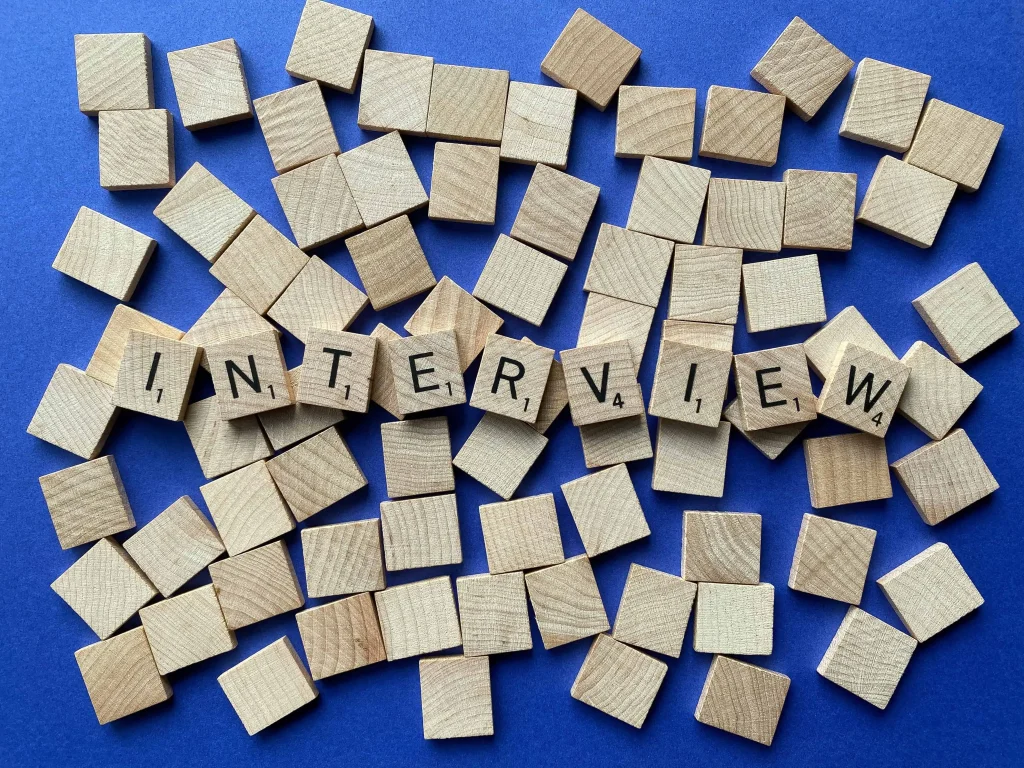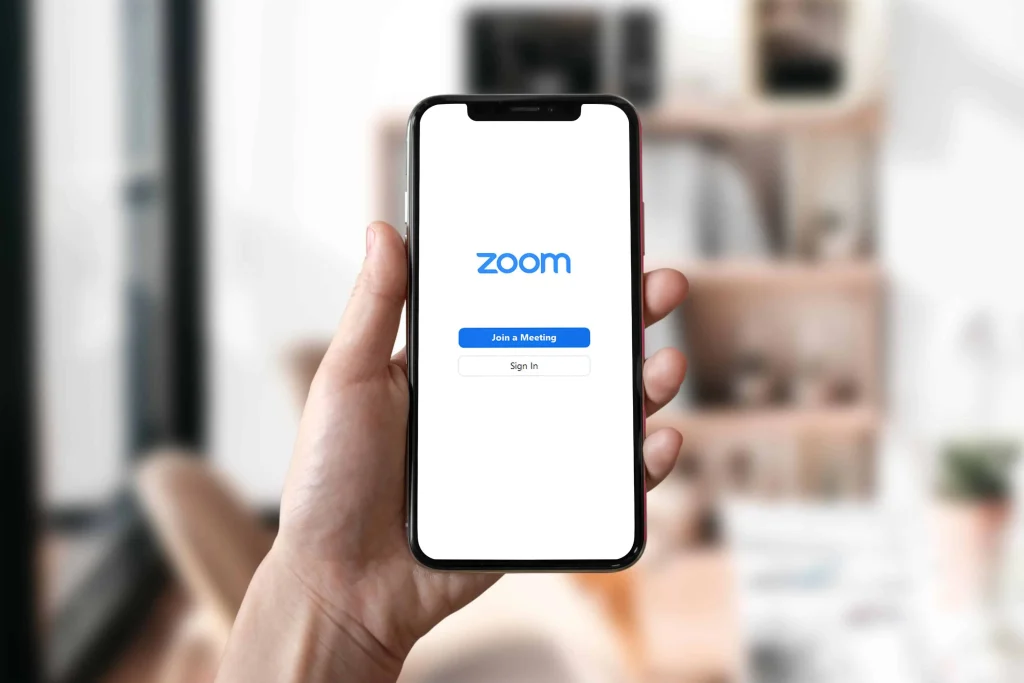Remote Interview Questions: The Top 7 & How to Nail Every Single One
Remote work is common for millions of workers everywhere. As more teams work from different places, remote interviews have become a standard practice.
Preparing for remote-focused questions gives you an edge in job hunting. However, remote interviews test different skills than in-person ones.
This guide covers common remote interview questions, sample answers, and tips to help you succeed in your next Zoom interview.
Table of Contents
Why Remote Interviews Are Different
Remote interviews look beyond your skills and experience. Hiring managers want to know if you can work well without an office setting.
They want to see if you can:
- Work well without constant supervision
- Communicate clearly through email, chat, and video
- Manage your own time and tasks
- Fix tech problems on your own
- Stay connected with teammates you rarely see in person

Soft skills matter most in remote interviews. Things such as good communication, time management, and self-motivation are must-haves for remote workers.
Common Remote Interview Questions (and How to Answer Them)
1. How do you stay productive when working from home?
What they’re checking: Your self-discipline and focus at home.
Sample answer: “I’ve set up a work-only space at home that helps me focus. I follow a morning routine that gets me in work mode—I get dressed, eat breakfast, and plan my day.
I block time on my calendar for focused work, usually 90 minutes, then take short breaks. I use website blockers during deep work time. I make it clear to family when I can’t be disturbed.
At day’s end, I review what I did and plan tomorrow. This gives me a clean start each morning.”
Bonus tip: Name 1-2 tools you use, like RescueTime or Toggl.
2. Can you describe your ideal remote work environment?
What they’re checking: Your tech setup and work boundaries.
Sample answer: “My home office has an adjustable desk, good chair, and two monitors. I have high-speed internet with a backup hotspot for outages.
For video calls, I use good lighting, a quality webcam, and a noise-canceling mic. My family knows my work hours and when I can be interrupted.
My workspace is separate from where I relax. This helps me keep work and life apart and ‘leave the office’ when I’m done.”
3. How do you handle communication in a remote team?
What they’re checking: How you stay in touch with teammates.
Sample answer: “Clear communication makes remote work possible. I use tools like Slack for quick updates, Notion for shared docs, and Loom for video messages when things get complex.
I over-communicate about my work, challenges, and deadlines. I post daily updates in team channels and flag problems early. I respect time zones by using methods that don’t need instant replies when possible.
If messages get mixed up, I schedule video calls to clear things up right away.”
4. What’s your approach to time management in a remote role?
What they’re checking: How you meet deadlines without someone watching.
Sample answer: “I balance structure with flexibility. I track projects in Notion and break them into clear tasks with deadlines. Each morning, I pick my top three priorities and schedule them during my best working hours.
I block time in my calendar for focused work, meetings, and breaks. This helps teammates see when I’m free and helps me stay on task. I build in extra time for surprise tasks.
I track finished work and review my habits weekly to find ways to improve.”
5. Tell me about a time you solved a problem independently.
What they’re checking: Your problem-solving skills when working alone.

Sample answer: “At my last job, our client dashboard broke hours before a big presentation. The data was wrong, and our tech team was unavailable.
The outdated numbers went against our presentation points. This could have hurt client trust. I needed to fix the dashboard or find another way to show the right data before the meeting.
I took screenshots of the problem and checked our help docs. I tested fixes in a backup system first. I found and fixed a data connection error.
The dashboard worked again 45 minutes before the presentation. I wrote up how I fixed it for the team. My boss said this quick thinking prevented a client problem.”
Culture-Fit Questions in Remote Interviews
Team culture matters even when everyone works from different places. These questions show if you’ll fit in with the remote team.

How do you build relationships with remote coworkers?
Sample answer: “I join team activities and casual video calls. I schedule one-on-one coffee chats to learn about teammates’ interests and work styles. In my last job, I started ‘Friday Wins’ where we shared successes and thanked each other. This brought us closer despite working apart.”
How do you handle feedback over Slack or Zoom?
Sample answer: “With written feedback, I take time to think before I respond. I focus on the helpful parts. For complex feedback, I set up a video call to discuss it fully. I ask questions to make sure I understand. I always thank the person and share how I’ll use their input.”
Describe a time you had a miscommunication remotely.
Sample answer: “During a website project, I misunderstood written requirements about a feature. I should have asked for a quick call instead of guessing. When I saw the mistake in our review, I owned up to it right away. I offered solutions to fix it and suggested kickoff calls for future projects. This taught me that it’s better to ask too many questions than too few.”
Technical Setup Tips for Remote Interviews
Your tech setup during the interview shows if you’re ready for remote work. Make sure you have:
- Good video: Put your camera at eye level with light on your face, not behind you
- Clear sound: Use a headset in a quiet place
- Strong internet: Test your speed before (aim for at least 10 Mbps) and have a backup plan
- Clean background: Use a tidy space or simple virtual background
- Professional clothes: Dress well from head to toe
- No distractions: Close extra apps, mute alerts, and tell others about your interview time
Quick Tips to Ace Your Zoom Interview Questions
- Practice on the same video tool you’ll use for the interview
- Prepare questions about communication styles, tools, and how they measure success
- Learn about the company’s remote culture from their website and reviews
- Be ready for a test task to show your skills
- Check your tech 30 minutes early to fix any problems

Preparing for remote interview questions shows you understand the challenges of working from home. Your answers prove you have the discipline, communication skills, and tech setup to succeed.
Be honest about your real experiences. With good prep, you’ll stand out in your remote interview and land that work-from-home job.

